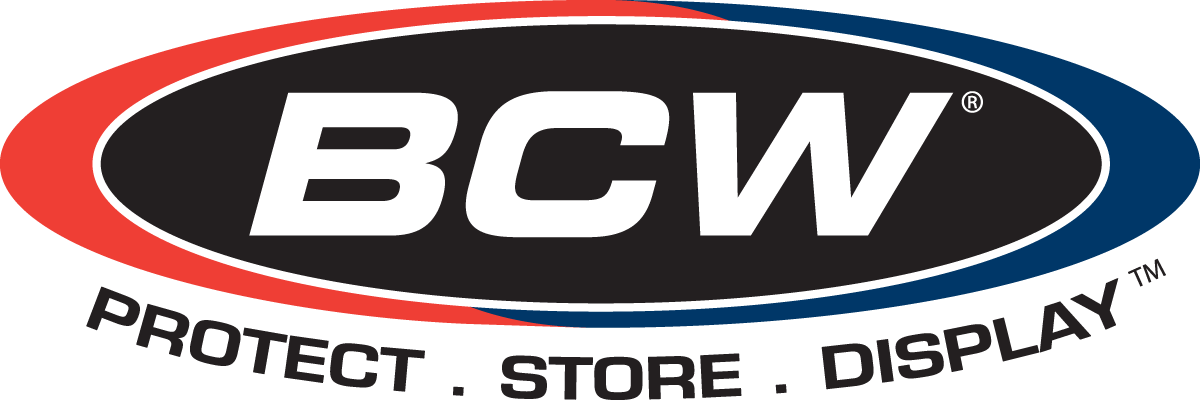Is Polyester or Polypropylene the Right Choice for my Sleeves and Bags?
We make a simple distinction between bags and sleeves. We define the bags as having a flap that wraps over the top, while the sleeves are open on the top.
In many instances, such as comic bags, you can select bags made from polyester or polypropylene. Which material is best for your needs? There are several factors to consider to make the best choice.
Both polyester or polypropylene are considered archival-safe by the U.S. Library of Congress (learn more at the LOC page). The different chemistry between polyester or polypropylene gives them different attributes as sleeves and bags. BoPET (biaxially-oriented polyethylene terephthalate) is a polyester film made from stretched PET (polyethylene terephthalate). BoPET is commonly called Mylar, the brand name of BoPET developed by the DuPont company. Polyester is inert and has no plasticizers or other chemicals that will damage collectible documents. Polyester is almost completely impermeable to liquids and gases. Polyester is transparent and does not yellow with age. Polyester film is the material of choice for archiving many of the United States’ most valuable historical documents according to the Library of Congress. Polypropylene is also archival safe, however it is gas permeable.
Polyester sleeves and bags are more rigid than polypropylene counterparts. This gives polyester bags a brilliant, shiny surface. Polyester bags are strong and unlikely to tear, while the flexibility of polypropylene bags may be a better solution for some needs.
If price is a consideration, polypropylene sleeves and bags are more cost effective than those made from polyester (Mylar). This makes polypropylene the popular choice for large collections.
For all of the bags and sleeves offered by BCW Supplies, we clearly define what material is used in its production. The description is found on the product’s respective webpage.

Hi. Why are you calling mylar polyester.. There are polyester bags that have nothing to do with mylar making this article somewhat confusing?
Mylar is a polyester film. Technically speaking, it is biaxially-oriented polyethylene terephthalate (boPET). “Mylar” is a branded product of Dupont. Other branded names of boPET include Melinex and Hostaphan.
You are correct – there are other forms of polyester that are not Mylar. BCW is not claiming our polyester bags are Mylar, as that is a specific brand, but rather it is equivalent material. It is the same concept as asking for a facial tissue instead of a Kleenex.
Question about Mylar Sleeves. With them being open at the top and subject to the surrounding environment, ie. dust, heat, sunlight, might this also cause pages to brown or fade quicker than comics that are sealed with a flap down? Even if all books are stored in comics boxes.
All of BCW’s Mylars are bags, not sleeves. Meaning they all have a flap that fold over the comic. These Mylars need to be taped, as they are not available with a resealable strip. Most of our Mylars are named Archivals on our website – https://www.bcwsupplies.com/comic-book-storage/comic-bags/plasticmylar
There are Chinese sellers that have OPP sleeves in convenient sizes for stamp related material. There is some information saying OPP is more porous than PP so not as safe for storage. What do you think of OPP? Either way I would prefer to buy PE forms from BCW. BCW has addressed some of the sizes with the game board sleeves but could add some smaller and larger sizes to fit most stamps and souvenir sheet sizes. Thanks.
The oriented polypropylene (OPP) is an achival-safe material. Yes, OPP and polypropylene (PP) are more porous than polyester (PE), but these are microscopic spaces. More air will pass through the bag opening than through the plastic itself, unless you have a perfectly sealed bag.
Are there any polyester trading card sleeves?
Our standard sleeves (1-SSLV, and 1-SSLV-THICK for thick cards) are made from polypropylene which is acid free. I’m not aware of polyester (Mylar) sleeves for cards.
I am looking to buy sleeves for art commissions. If by the polypropylene instead of the Mylar to store them will they yellow with age?
Polypropylene can yellow over time, although it usually takes several years. We do recommend changing bags regularly for this reason.
I’m confused, your currency sleeves all are made from PVC (Polyvinyl chloride), which I’ve read is a chemical that contributes to aging of paper currency over time, and is archive safe. But here you say you make your materials out of polyester, which IS archive safe. So am I misunderstanding? Are your comic book bags archive safe, but your currency sleeves… aren’t? Thanks.
All of our sleeves (and regular comic bags) are made of polypropylene which are archival safe.
Toploaders and semi-rigid holders are made of PVC, which is not archival safe and is best used for short-term storage or used with a sleeve.
Hope this helps.